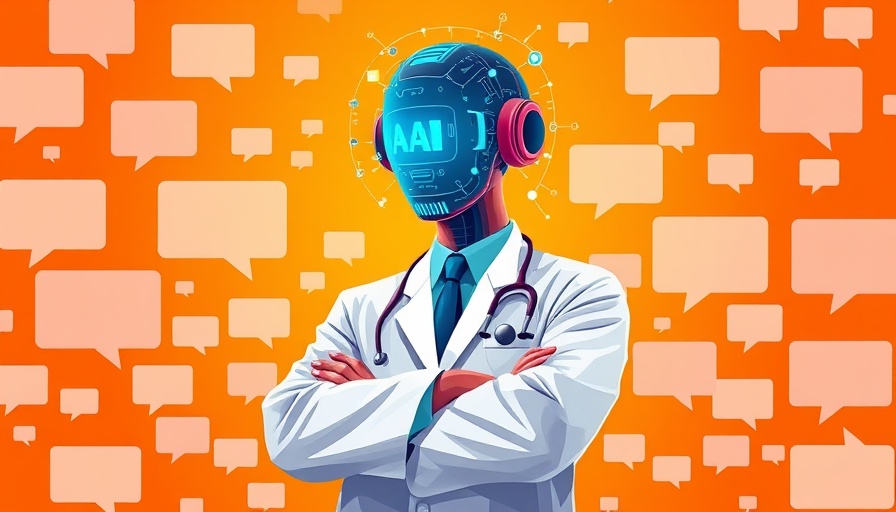
AI in Healthcare: A Game Changer for Patient Care
Imagine a future where artificial intelligence (AI) works alongside healthcare professionals, not as a competitor but as a crucial ally. Recent studies have demonstrated this paradigm shift, particularly through the work of K Health. In a notable study conducted in partnership with Cedars-Sinai, Tel Aviv University, and K Health, their AI model proved to be more than just a tech novelty—it significantly aided medical professionals in diagnosing and treating patients.
A Closer Look at the Study's Findings
The collaborative research aimed to evaluate the effectiveness of K Health's AI in real-world clinical settings. Reviewing 461 patient visits, the findings revealed that the AI model matched doctors' clinical recommendations 68% of the time. Impressively, it surpassed human diagnoses in nearly a third of cases, showcasing not just promising technology but a potential new standard in patient care.
The Role of AI in Augmenting Human Expertise
As Allon Bloch, CEO of K Health, succinctly puts it, this model does not create competition for doctors but rather augments their capabilities. The AI's ability to process vast amounts of clinical data allows for informed decision-making, empowering physicians to focus on more complex patient interactions. This validates an AI-assisted healthcare model, proving that technology can enhance accessibility and accuracy in healthcare delivery.
Implications for the Business of Healthcare
For business brokers focused on healthcare investments, understanding the evolving landscape of AI in medicine is essential. This technological integration is transforming health practices and potentially reshaping business models for healthcare services. As AI continues to advance, brokers can leverage this knowledge to guide their clients toward promising investments in innovative health solutions.
Moving Forward: What This Means for Healthcare Investment
The convergence of AI and healthcare offers numerous opportunities for those in the business of brokerage. As established systems like Cedars-Sinai adopt AI-driven tools, brokers can align themselves with these trends, promoting investments that not only meet the current demand but also anticipate future shifts in the healthcare market.
The integration of AI into healthcare is a significant development, suggesting that the future of patient care will involve collaborative human-AI partnerships that lead to improved health outcomes. For business brokers, this trend presents an opportunity to engage with clients seeking innovative pathways in healthcare investment.
 Add Row
Add Row  Add
Add 




Write A Comment